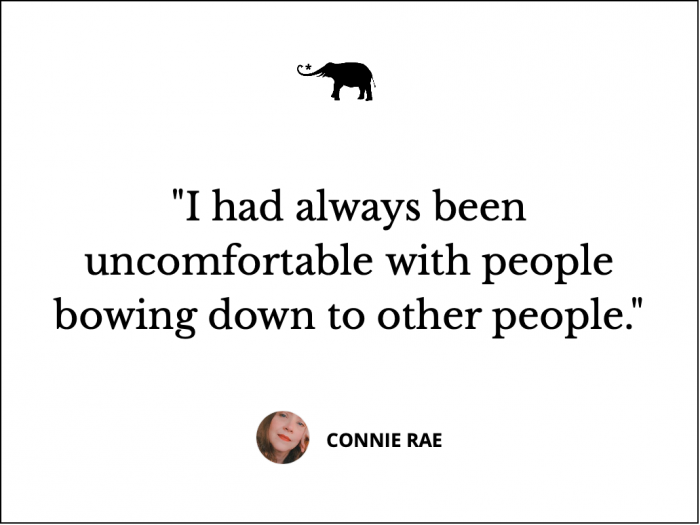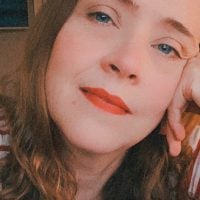I grew up in India in the 1980s in an Ashram.
Despite being pretty awesome in many ways, we were mainly encouraged to follow the eastern Hindu teaching of karma—the belief that it was only by doing for others that one could be a good human being.
As a teenager, I was a little more self-centered than that. And my saving grace was reading books. I read everything I could get my hands on. From seven to 17 and beyond, I was much like today’s teenagers with technology and phones, except for me, it was with books.
I walked to the bus with a book in my hand. I was often told, “Don’t read at the dining table!” (Ohhh, for my kids to read at the dining table now!) I read on the way to and from school. And one day, I came across Illusions by Richard Bach. And it blew my mind.
I mainly read fiction then, and even today, struggle to read something that isn’t telling me a story or taking me away to a make-believe place. Illusions tells the story of a messiah who is a bush pilot. This in itself was amazing to me.
In India, gurus were revered and waited on. They sat on a pedestal above the rest of us mere mortals—a subject for another time. So, the concept of a messiah who was as ordinary as you and me was mind-blowing. This messiah gave the author a guide to being a messiah, and the gems within changed how I viewed the world.
Here are nine of my favourite quotes and why they blew my mind:
1. “Learning is finding out what you already know. Doing is demonstrating that you know it. Teaching is reminding others that they know just as well as you. You are all learners, doers, teachers.”
Was teaching, in the spiritual sense, reminding others of what they already knew? This made so much sense. It was terrifying. I had always been uncomfortable with people bowing down to other people, and this just proved that it was unnecessary.
2. “Your only obligation in any lifetime is to be true to yourself. Being true to anyone else or anything else is not only impossible but the mark of a fake messiah.”
I had always been told that being selfish was the most undesirable quality to possess. I realized I didn’t have to feel guilty about being true to myself, speaking my mind, and saying no when something didn’t feel right, even if that was seen as selfish.
3. “The simplest questions are the most profound. Where were you born? Where is your home? Where are you going? What are you doing? Think about these once in a while, and watch your answers change.”
This was a profound exercise for me. I was born in England and moved to India. I was one of the only white people most of the locals had ever seen. I never felt like I entirely belonged anywhere. And we were never encouraged to think about where we were going. We were to stay where we were for the rest of our lives, in the service of the Lord, by serving his people, the poor.
4. “You teach best what you most need to learn.”
Again, mind blown. So, did this mean that the wise ones, the people who knew so much more than us, also had lessons to learn? This made them so much more approachable. If only they also knew this.
5. “The best way to avoid responsibility is to say, ‘I’ve got responsibilities.'”
I don’t remember what I thought about this as a teenager, but I certainly know what I think about it now. Whenever people lose motivation to spend time with me, talk to me, be my friend, I always hear I am busy. When motivated, people create time out of the busiest of schedules, and when the motivation is gone, they tell us they are busy, even when we know they are probably binging Netflix.
6. “You’re always free to change your mind and choose a different future or a different past.”
Again, this was one I did not appreciate as a teenager, but when I reread the book as a 40-year-old, I realized that it was one of the most profound statements I have ever read. As a child, I could not understand how I could have chosen a different past. I wished I could have. Having no father in a culture where we were only respected if we had one was an absolute bummer. And that was only one of the things I would have changed. But now I get it. I can choose to dwell on those aspects or choose the beautiful parts of my past. And I do that now, every day.
7. “The bond that links your true family is not one of blood but of respect and joy in each other’s life. Rarely do members of one family grow up under the same roof.”
This was true for me then, and it is true for me now. Some of the friends who supported me growing up, who helped me to overcome the many obstacles in my life, who offered me unconditional love, were and still are my true family.
8. “Argue for your limitations, and sure enough, they’re yours.”
I speak to clients about this every day. “Don’t be afraid of your brilliance.” “Don’t repeat the criticisms of your parents.” “Don’t put yourself down.” I learned much too late in life that I am important and wonderful and that it’s okay to not only think that way but to say it too. Studying Maslow’s hierarchy of needs during my counseling training was a real eye-opener. I could only move toward self-actualization if my lower-level needs were met.
9. “Here is a test to find whether your mission on earth is finished: If you’re alive, it isn’t.”
Well, isn’t that wonderful? It’s a message to all of us who question what our mission is, who wonder if we have finished or are yet to find it. We are alive. We are here. Life is our mission. We have not finished.
Live your life, chase your dreams, do not doubt your worth or the joy you bring to the earth. Be kind to others, but first to yourself. Help others, but not at the expense of your happiness.
Finally, in Bach’s words, “Your only mission in life is to be true to yourself.”
~











Read 1 comment and reply